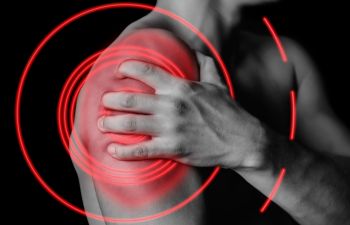
According to some reports, shoulder pain in the United States affects as many as 67% of the population over the course of their lifetime. Through an intricate framework of muscles, tendons and ligaments, the shoulder is the most mobile joint in the body. Yet, some believe that this comes at the expense of stability. In other words, the range of motion of the shoulder joint combined with everyday wear and tear makes the joint more susceptible to injury.
One of the most common problems associated with the shoulder joint is inflammation, which professionals might diagnose as bursitis or tendonitis. Perhaps the more proper term is shoulder impingement syndrome.
To better understand this condition, consider how each component of the shoulder joint connects to the chest, or upper extremity. The bones, muscles and ligaments are unique in their position, with tendons of the rotator cuff residing between the arm bone (humerus) and the top of the shoulder blade (acromion). Thus, imagine that there is swelling between theses bones. Given this scenario, the tendons and bursa, which normally move effortlessly in this space might become pinched or compressed between the bones.
While this impingement might occur as a result of an injury, there are instances in which the shape of an individual’s bones genetically have less space than others, according to Very Well Health. Even so, the narrowed space does not allow for smooth, effective movements. What’s more, with continued movement, inflammation increases and the tendons and bursa thicken. The cycle continues, leading to symptoms such as:
- Pain when reaching overhead
- Pain during sleep
- Pain across the outside of the shoulder and upper arm
When experiencing pain from shoulder impingement syndrome, traditional treatments include rest, withdrawing from certain activities, anti-inflammatory medications and/or physical therapy. Others include cortisone injections. At Manhattan Sports Therapy, we are equipped to non-surgically treat shoulder pain, and we do it with an individualized approach.
Get the shoulder pain relief you need and deserve. Contact our sports medicine and physical therapy team at Manhattan Sports Therapy today.
Posted on behalf of
515 Madison Avenue FL 22A
New York, NY 10022
Phone: (212) 310-0100
Email: sportstherapy150@icloud.com


